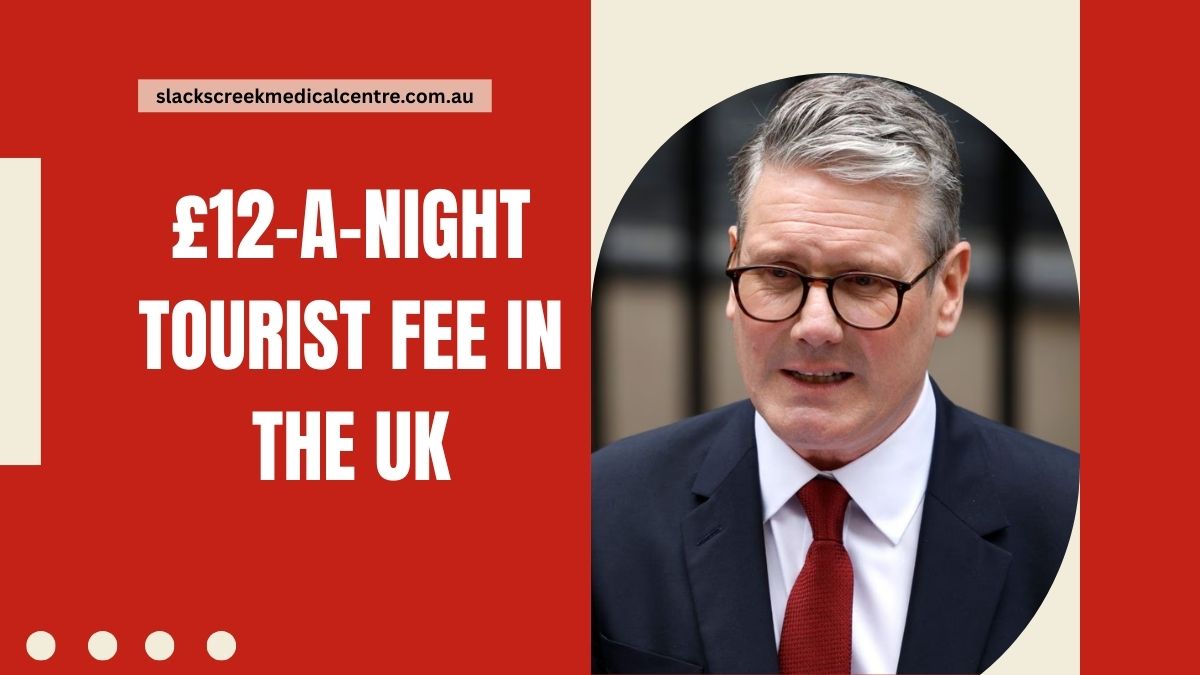Planning a trip to the United Kingdom in 2025? You might need to reconsider your travel budget as the government has proposed a £12-a-night tourist fee for overnight stays.
This new fee could apply to both domestic and international travelers, potentially adding extra costs to your accommodation.
In this article, we’ll break down everything you need to know about this tourist tax, including eligibility, payment dates, and what it means for your travel plans.
Key Details About the Proposed £12-a-Night Tourist Fee
| Feature | Details |
|---|---|
| Proposed Fee | £12 per person per night for overnight stays in the UK |
| Who It Affects | Domestic and international travelers staying in accommodations |
| Where It Applies | Nationwide (pending approval), with local taxes already in place |
| Revenue Goal | Estimated £1 billion annually for local services and tourism |
| Implementation Date | Under discussion, expected in the near future |
| Countries with Similar Fees | France, Italy, Spain, Netherlands have similar tourist levies |
What Is the £12-a-Night Tourist Fee?
The £12-a-night tourist fee is part of a larger plan to manage the growing number of tourists visiting the UK each year. Accommodation providers, including hotels, hostels, B&Bs, and campsites, will collect this fee from travelers who stay overnight.
The fee is designed to help support local services like transportation, waste management, and cultural preservation.
This initiative is in response to the increasing pressures that tourism places on public services, especially in popular tourist destinations.
READ MORE: DWP and HMRC Benefit Payment Changes Coming Next Week – What You Need to Know
Why Is the UK Introducing This Fee?
Tourism in the UK is a £60 billion industry, but with the growth in visitor numbers, local infrastructure and services have been under strain.
The government aims to use the revenue from this fee to help maintain the public transport system, historic sites, and other essential services, all while ensuring a high-quality visitor experience.
Additionally, the fee could reduce the financial burden on taxpayers who currently fund these services.
Current Local Tourist Taxes
While the nationwide £12 tourist fee is still under discussion, several cities in the UK have already implemented local tourist levies. These local taxes serve as a trial phase for the national rollout:
- Manchester: £1 per room per night since April 2023.
- Bournemouth, Christchurch, and Poole (BCP): £2 per room per night (effective from July 2024).
- Edinburgh: Planning a 5% tax on overnight stays by 2026.
How the Tourist Tax Works
If the £12 tourist fee becomes law, it will be applied directly to your accommodation booking. Here’s how the tax will likely work:
- Booking Accommodation: When booking through an online platform or directly with a hotel, the £12 fee will be added as a separate line item, similar to VAT or service charges.
- Tiered Pricing System:
- Campsites: Around £1 per person per night
- Budget Hotels & Hostels: Around £5 per person per night
- Mid-range Hotels: £8 to £10 per person per night
- Luxury Hotels: Up to £12 per person per night
- Payment and Collection: The fee will be collected by the accommodation at the time of booking or during checkout. The funds will be transferred to local councils or national authorities.
- Use of Funds: The revenue will support:
- Public transportation upgrades
- Preserving historical sites
- Improved public safety through street lighting and patrols
- Environmental initiatives, such as waste management
Impact on Travelers
The introduction of a £12-a-night tourist fee could lead to an increase in overall travel expenses, especially for families, backpackers, and group travelers.
For example, if you’re staying in a major city for a week, your total costs could increase by £84 to £105 depending on the type of accommodation.
Travel Tips to Manage the Additional Fee:
- Check local tax policies: Before booking, verify the tourist taxes that apply to your destination.
- Stay outside major cities: Consider staying in smaller towns or outskirts to avoid higher rates.
- Book during off-peak seasons: Prices are typically lower during the off-season.
- Use loyalty programs: Sign up for hotel loyalty programs to potentially offset additional costs.
How the UK Compares Globally
The UK is not the first country to implement a tourist tax. Several European countries have similar systems in place:
- France: Charges between €0.20 to €4.20 per person per night.
- Italy: Rome levies €7 per night for accommodations.
- Netherlands: Amsterdam charges a 7% room rate fee plus €3 per person.
- Spain: The Balearic Islands charge up to €4 per night for tourists.
These countries have successfully used tourism taxes to improve local services and preserve cultural sites.
The proposed £12-a-night tourist fee in the UK is a bold initiative to manage growing tourism pressures and ensure the sustainability of public services.
While it may increase costs for travelers, the funds will contribute to better services and infrastructure that benefit both visitors and locals.
Understanding how this fee works and how it affects your travel plans will help you budget more effectively and make the most of your trip.
FAQs
When will the £12 tourist fee be implemented?
The exact implementation date is still under discussion, but it is expected to happen soon after further consultations.
How will the £12 tourist fee be applied?
The fee will be automatically added to your accommodation costs when booking online or at check-in.
What will the funds from the tourist tax be used for?
The funds will support public services such as transportation, historical site preservation, and environmental initiatives.

